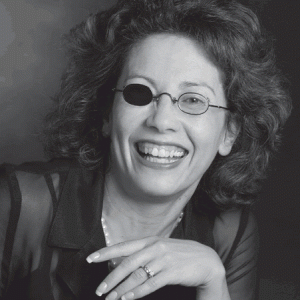The National Federation of Community Broadcasters 36th annual conference is finished, and I had a great time moderating one of its workshop panels: Great Music Programs. The panelists included Florence Hernandez-Ramos of the Latino Public Radio Consortium, Anthony Bonet of KALX-FM in Berkeley, and Bonnie Simmons of KPFA-FM, located in that same city.
Over the next week I’m going to write up the great presentations that each of these speakers gave at the workshop, starting with Hernandez-Ramos’ remarks.
Go for the broader audience
When Hernandez-Ramos helped found listener supported KUVO-FM in Colorado in the 1980s, she and her associates gave a lot of thought to in which language the station would broadcast, English or Spanish? They noticed that most Latinos in the area spoke English as their primary language.
“We said, ‘well, rather than just have the General Manager and her husband be the ones supporting the station, why don’t we try for the broader audience’?” Flo explained at the workshop. “So we became an English language station. We surveyed the Latino community and even though they were Spanish surnamed, they spoke English. And they said that the kind of music that they were really missing was Jazz.”
“So we became a Jazz music station, and we put our stamp in there of Latinoism by putting Latin Jazz into the mix, so we have a mix of straight ahead Jazz with Latin Jazz. And we made all our public service announcements for, by, and about the Latino community.”
Then they started getting some interesting calls, Flo explained, calls from people praising the station. “These were not Latinos calling us,” she noted. “And we said ‘What are they doing listening to our station’. But we knew what universality was, and the accessibility that language gives to a format. So we decided to become very multicultural.”
“In that mix, because we wanted to retain that stamp of Latinoism, we had a program called Cancion Mexicana, which aired on Sunday mornings, which had Spanish language format, and of course Mexican music, because that was the predominant ethnic heritage that lived in the area. So we had native speakers in Spanish, and they would introduce the program.”
“We thought that the Spanish speaking community would certainly consume that program, be all over it. But, as more and more Spanish speakers started moving into the area due to immigration shifts, more Spanish language commercial stations started opening up. And because that happened, then we suddenly realized after about a year, that the Spanish speaking community was not waiting until Sunday mornings to go ‘Oh! We’ve got to tune into this Spanish programming on KUVO’!”
“We went back to our roots and said, ‘Ok. What was the original premise of this radio station? The original premise was that we were going to focus in on English speaking Latinos, so let’s go back and do that.”
You sound much taller
Thus, KUVO changed the programming, keeping the Spanish language music, but with music from Texas, New Mexico, California, Colorado, “and all of the announcements in between are done in English,” Flo explained.
“When we did that, the ratings for that program shot up to where that program became the number one program in the market on Sunday morning.”
One caller asked Flo, “why does an English speaking white guy like me who moved out here from the midwest like your programming?”
“I said ‘I have no idea, because we did not design this for you. But you are certainly welcome to listen’!”
“So the most important thing is to know your audience,” she emphasized at the panel, “and know who it is that is going to be listening to you. We have immersed ourselves completely in our audience in the sense that, as a deejay, you are part of the community to whom you are playing if you go out and go to the events that they like to go to. If you go out and eat at the restaurants that they like to go to.”
“You run into them all the time. No only do you end up personally feeling like a superstar, because they say, ‘Oh my God! Flo’s here from Cancion Mexicana.’ You go to events and the minute you open your mouth they hear that voice, and all of a sudden they say things like ‘Oh. You sound much taller on the radio’.”
Trip to Mexico?
I asked each panelist to describe a mistake they thought they’d made in the course of their work. Here was Flo’s answer.
“Not knowing your audience is a mistake,” she explained. “A mistake we made early on when we had Cancion Mexicana and we were promoting it to everybody, we would go to Spanish language events. We would offer as a door prize, we would have . . . ‘a trip to Mexico! Round trip! You can fly first class on Mexicana Airlines’!”
“Ok. Think about this folks,” she asked the panel audience. “How many Spanish speakers that just went through hell crossing the border are going to want to sign up for a round trip to Mexico? Not very many people.”
“Finally we said, ‘let’s switch this up.’ And when we switched the programming, and made the programming accessible to the Latinos that we decided that we were going to serve, then we tailored the door prizes to their wants. Those people wanted to sign up for the trip to Mexico. But we also realized that there were a lot of non-listeners that might want a trip, so we had to tie it into the music. How about tickets to the Conjunto Festival?”
“Know your audience. It’s the most important thing I can think of,” Hernandez-Ramos concluded.



